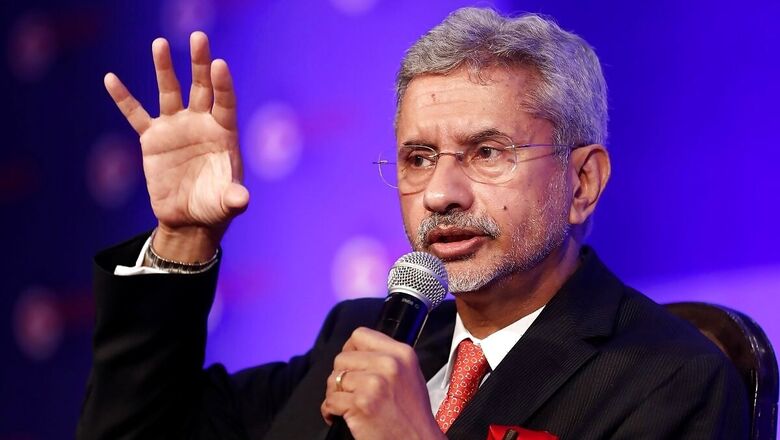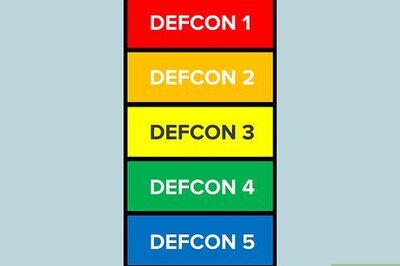
views
New Delhi: In the midst of Sino-India border row, External Affairs Minister S Jaishankar on Saturday said any attempt to unilaterally change the status quo of the Line of Actual Control is "unacceptable" and that the agreements between two countries must be respected "scrupulously" in their entirety to restore normalcy in ties. The external affairs minister said peace and tranquillity in the border areas provided the basis for expanded cooperation between India and China but as the pandemic unfolded, the relationship has come under severe stress.
He was delivering the Sardar Patel Memorial lecture which was aired on All India Radio. "To restore normalcy, agreements between the two countries must be respected scrupulously in their entirety. Where the Line of Actual Control (LAC) is concerned, any attempt to unilaterally change the status quo is unacceptable," Jaishankar said.
"The relationship cannot be immune to changes in the assumptions that underpinned it. Large civilisational states re-emerging in close proximity will not have naturally easy ties," he said. The external affairs minister said the ties were stable for three decades as the two nations addressed inherited challenges and new circumstances.
"Peace and tranquillity in the border areas provided the basis for expanded cooperation in other domains. But as the pandemic unfolded, the relationship has come under severe stress," he said. India and China are locked in an over five-month-long bitter border standoff in eastern Ladakh that has significantly strained their ties. Both sides held a series of diplomatic and military talks to resolve the row. However, no breakthrough has been achieved to end the standoff.
Referring to cross-border terrorism, he said India has to be uncompromising in combating it. The external affairs minister said India will continue to give the utmost attention to its immediate neighbourhood while engaging the different poles of emerging global order.
"As an outlook, the Neighbourhood First policy remains generous and non-reciprocal in creating the basis for shared activities in different domains. "In recent times, India has also become more conscious of the extended neighbourhood, that is so much a part of its history and heritage," he said.
.
Read all the Latest News and Breaking News here




















Comments
0 comment